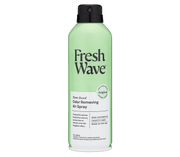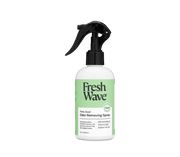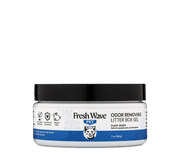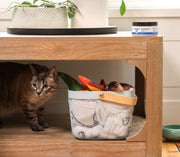If you’re striving to reduce the number of chemicals that you use in your home, lavender may seem like an ideal alternative. Lavender essential oil is used in many plant-based air fresheners because of its appealing scent and botanical origin. These products may not release the synthetic perfumes and chemicals found in conventional air fresheners to benefit people and the planet, but that doesn’t necessarily mean they are safe for all pets, especially cats. Read on for the full answer to the question “is lavender safe for cats?” and to learn more about the relationship between lavender and cats.
Is Lavender Safe for Cats?
The American Society for the Prevention of Cruelty to Animals (ASPCA) cautions that lavender plants are toxic for cats as well as dogs and horses. Cats lack the ability to digest two natural substances found in lavender: linalool and linalyl acetate. The organization recommends that if your cat ingests any part of a lavender plant that you contact animal poison control or an emergency veterinarian as soon as possible.
Is Lavender Oil Safe for Cats?
Lavender oil may be even more dangerous for cats than a lavender plant. Essential oils are highly concentrated, so they often contain large amounts of linalool and linalyl acetate. When diffused, lavender essential oil can end up on your cat’s coat, where it can become absorbed by the skin. In addition, your cat may sense the essential oil and groom the affected area, leading to ingestion of highly concentrated substances that their body can’t process.
What About Lavender Scents and Air Fresheners?
Scented products like air fresheners that contain lavender essential oil are less potent than essential oils. However, cats can still breathe in the oil. There are no definitive studies on how much lavender oil is in air fresheners and whether other products are safe for pets.
How Do I Know if My Cat is Being Harmed By Lavender Scented Oils and Sprays?
Some symptoms of health complications due to exposure to lavender in cats include:
- Stomach problems like vomiting and diarrhea
- Refusing to eat or drink
- Lethargy, unwillingness to play
- Drooling
- Tremors
- Staggering
- Wheezing and asthma
- Slower breathing rate
- Difficulty breathing
- Liver failure, which can cause rapid weight loss and yellowing of the skin, eyes and gums
If you notice any of these symptoms of lavender toxicity, seek emergency medical attention for your pet.
How to Make Sure Your Cat Stays Safe
If you have lavender-scented air fresheners and candles at home, you can take some steps to protect your cat from their potential dangers by:
- Avoiding your pet’s favorite areas: Don’t use the products near your cat’s litter box, toys, food and water bowls and favorite napping spots.
- Burning lavender candles in larger rooms: Bigger rooms give the lavender oil in candles more space to move. When the scent molecules are spread out more, your cat is less likely to inhale toxic levels of lavender.
- Concentrating on odor-fighting near the source: Mountable air freshener pods can help you continue to enjoy the scent of lavender oil while minimizing your cat’s exposure. You can place these air fresheners close to sources of odors like inside the lid of the trash can, above your oven range or in the garage or basement.
- Temporarily limiting your cat’s access to certain areas: When you do need to use lavender air freshener spray in a small room, do so when your cat isn’t present. Close the door and allow a couple of hours to pass before you open it and allow your cat inside.
- Choosing other methods of aromatherapy: If you use lavender oil for aromatherapy, explore other methods beyond diffusing. You can add a couple of drops to your bathwater before a soak and then rinse the tub out thoroughly after you’re finished. Or, mix a few drops into a carrier oil and apply it to your skin in an area that your cat doesn’t normally nuzzle or lick.
Are There Other Alternatives to Lavender Scented Air Fresheners?
If you’re concerned about whether lavender is safe for cats, consider alternatives to lavender-based air fresheners. It is possible to avoid lavender oil and still neutralize odors with plant-based products. Fresh Wave offers three products that you can use to freshen the air without worrying about the effects on your pets:
- Fresh Wave Odor Removing Spray: This plant-powered spray refreshes fabrics and surfaces by neutralizing the molecules that cause foul odors. Use it to freshen up carpeting and upholstery or for wiping down countertops, the insides of trash cans and the area around litter boxes.
- Fresh Wave Odor Removing Non-Aerosol Fine Mist Spray: Using plant-derived ingredients, this freshener fights the root causes of odors and can be used in place of any lavender oil or chemical-based air fresheners. Its fine mist is great for neutralizing scents on pet bedding, backpacks, shoes, car upholstery and many other surfaces.
- Fresh Wave Odor Removing Gel: Using plant-based ingredients, this gel continuously freshens the air by gradually releasing molecules that bind with odor compounds in the air. One 15-ounce jar can fight cooking odors, litter box smells, bathroom odors and other unpleasant scents for 30 to 60 days. Refills are available to extend the odor-fighting benefits of the jar while reducing waste.
Fresh Wave Odor Removing Spray, Fine Mist Spray and Gel all carry the Safer Choice insignia, meaning they have been evaluated by the U.S. Environmental Protection Agency (EPA) and found to perform effectively while sparing people and pets from potentially harmful chemicals. The EPA’s seal means you can buy these products and use them around your cat and every member of your family with confidence.







